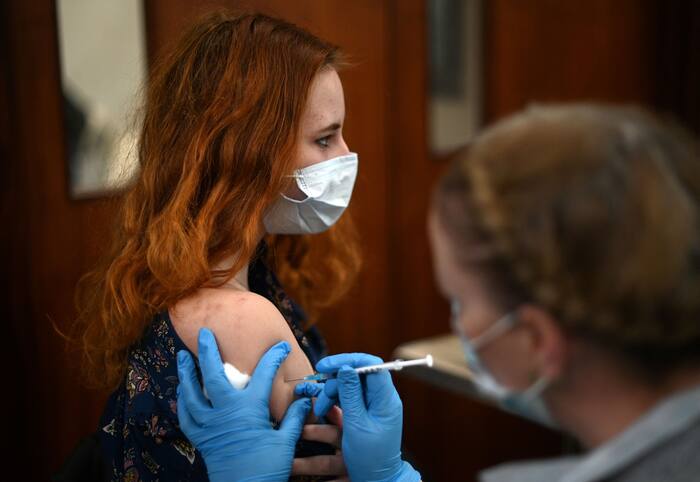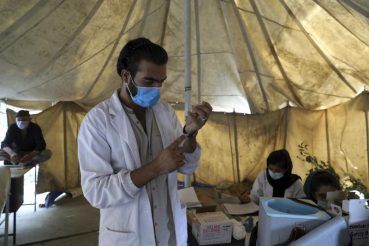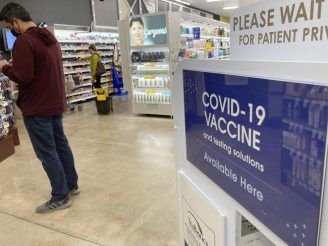
By clicking “Accept All Cookies”, you agree to the storing of cookies on your device to enhance site navigation, analyze site usage, and assist in our marketing efforts Cookies Policy.

New Delhi: With the recent surge in new variant of coronavirus called ‘Omicron’, all eyes are on COVID booster shots. The rise in Omicron variant cases, which has spread to over 38 countries including India, has left the world once again whipsawed between hopes of returning to normal and fears that the worst is yet to come.
Even as scientists are working furiously to learn more about the Omicron variant, a debate on the use of COVID booster shots remained a focal point of discussion. Much remains unknown about the new Omicron variant, including whether it is more contagious, as some health authorities suspect, whether it makes people more seriously ill, and whether it can thwart the vaccine.
While calls for booster jabs are growing over concerns of the Omicron Covid variant, their durability, impact, and ability to quash the infection remain unknown, according to a report by Nature, news agency IANS reported. Due to the presence of more mutations, Omicron is suspected to undermine vaccine performance. Although it is yet to be proved, vaccine makers are developing variant-specific boosters, the report stated
Many health officials insisted that vaccination remains the best defense to handle any new surge of coronavirus cases with an eye on COVID booster doses. Immunisations with available shots could help ward off a surge of Omicron infections, health experts believe, but the question remains whether the need for boosters continue indefinitely.
Before Omicron, it was thought that the immune-system players — memory B and T cells — were holding up well, and two doses of a Covid-19 vaccine would maintain long-term protection against severe disease and death. But the new variant could change the immunological picture, the researchers said.
Experts are of the view that the extra vaccine shots may help bend the pandemic’s curve but it cannot bring an end to it.
Real-world data from Israel and the UK indicated that Pfizer’s booster dose significantly lowers the risk of infection from SARS-CoV-2 and getting severe diseases. The booster doses also effectively reduced the number of daily cases in Israel, the report said.

(Photo: AP)
Based on national estimates from the US, the researchers found that a broad booster push could decrease the virus’s reproduction number, Rt, which is the number of people an individual with Covid-19 can go on to infect, by around 30 per cent. “It’s not going to stop a raging epidemic. But it definitely can take an epidemic that’s growing at a very uncomfortable rate for lots of people, and make that into either a shrinking epidemic or a much, much less bad one,” Marm Kilpatrick at the University of California, Santa Cruz, said.
A study by the Indian Council of Medical Research (ICMR) scientists suggested the use of a booster dose of the Covishield COVID vaccine to fight emerging variants of the virus. So far, India has reported five cases of the Omicron variant. On Sunday, Delhi registered the country’s fifth Omicron variant case in the country after a man who returned from Tanzania tested positive for the new version of the variant. The first two cases of the country were reported in Karnataka while the third and fourth cases were confirmed in Gujarat’s Jamnagar and Maharashtra’s Dombivli.
The Omicron variant has been designated a variant of concern because of the number of mutations because early information suggests it may be more transmissible than other variants. Earlier, World Health Organization (WHO) officials said measures used to counter the delta variant should remain the foundation for fighting the new omicron version of the novel coronavirus.
Many countries including the US, Russia, UK, Spain, Australia, Germany, Nigeria are rolling out booster shots of the COVID vaccine in view of the Omicron variant threat. The European Centre for Disease Prevention and Control (ECDC) on November 24 recommended vaccine booster doses for adults with priority for those over 40. The European Commission on November 25 proposed that all EU residents will need to get COVID booster shots if they want to travel to another country in the bloc next summer without undergoing Covid tests or quarantines.

The US opened COVID-19 booster shots to all adults and took the extra step of urging people 50 and older to seek one. Under the new vaccine rules in the US, anyone 18 or older can choose either a Pfizer or Moderna booster six months after their last dose. Australia began administering Pfizer COVID booster shots in November to fully vaccinated adults.
Britain recently released real-world data showing the same jump in protection once it began offering boosters to middle-aged and older adults, and Israel has credited widespread boosters for helping to beat back another wave of the virus.
No official announcement has been made on COVID booster shots being made available in India. The government is yet to give any official confirmation on the decision of COVID booster doses. Earlier last week, while speaking in Lok Sabha, Union Minister Mansukh Mandaviya had said any decision of COVID booster shots or vaccines for children will be made only after proper review or recommendations by an expert committee. This comes a day after Opposition parties sought a reply from the Centre over clarity on Covid booster shots.
Meanwhile, the Indian SARS-CoV-2 genome consortium (INSAGOG) had suggested booster shots for those above 40. “Vaccination of all remaining unvaccinated at-risk people and consideration of a booster dose for those 40 years of age and over, first targeting the most high-risk/high-exposure may be considered since low levels of neutralising antibodies from current vaccines are unlikely to be sufficient to neutralise Omicron, though risk of severe disease is still likely to be reduced,” the INSAGOG said in a statement.
(With inputs from Agencies)
For breaking news and live news updates, like us on Facebook or follow us on Twitter and Instagram. Read more on Latest India News on India.com.